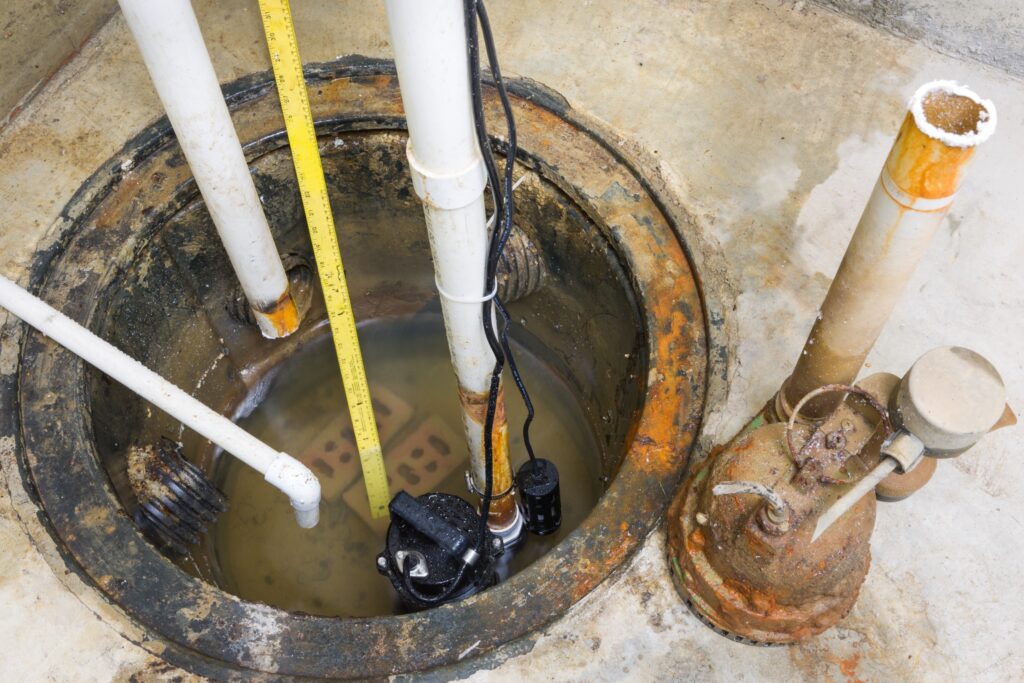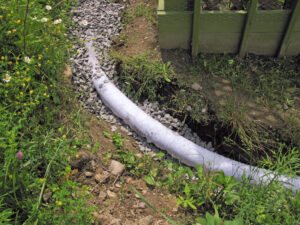A flooded basement is something you never want to experience as a homeowner. This is why you are probably considering getting a sump pump or already own one to get rid of water in the basement. A sump pump prevents water in the basement which could lead to water damage, which is quite expensive to repair. While installing a sump pump helps enormously, you should be aware of the legalities of draining the excess water. This article gives reasons why it is illegal for a sump pump to discharge into the street.
How Does a Sump Pump Work?
A sump pump is meant to get rid of excess water in your basement and discharge outside your house. This system is quite useful during the rainy months because the basement is likely to flood. The sump dump is usually constructed below the basement and is equipped with valves that sense water level.

Sump pump setup and installation
Once water surpasses a certain level, the sump pump is automatically triggered to pump water out of the basement to the designated area.
Water May Flow to Other Houses
It is illegal to discharge a sump pump into the street because water could potentially flow back to your house or your neighbor’s homes. This can be a possibility especially if your house is located at a higher level and once you discharge into the street, water could flow into your neighbors’ houses on the lower end.
Water May Return to Your Own House
Apart from draining into other people’s houses, water could return to your own home. This can happen if the pump is just a few feet away from the foundation or the street you are draining to is sloping towards your home. If water gets back to your house, it could cause potential structural water damage, which can be very expensive to repair.
Where Should a Sump Pump Discharge?
The recommended way to discharge a sump pump is to direct it away from your home. Remember that not all places are acceptable as drain areas. For instance, you cannot drain directly into the street or septic systems. Some good areas could be grassy areas that slope away from your house or into a city drain system.
Can You Connect a Sump Pump to the Sanitary Sewer System?
It is not recommended to connect a sump pump to the sewer system. The reasoning behind this is that sewer lines are made to carry a certain amount of water. Therefore, connecting a sump pump to the sewer could overwork the system, especially during heavy rainfall times. When a sewer system is overworked, it could surcharge, taking back sewage to your own house or your neighbor’s home through the toilet.
Another reason not to connect a sump pump to sewer lines is that it increases the amount of wastewater that should be treated. Rainwater can be too much compared to sewage water. If several neighbors connect their sump pumps to the sewer lines, it will not take much time before the sewer system’s capacity is exceeded. Once this happens, the county will not be able to treat all that water, since they are only prepared to handle a specific maximum amount. Therefore, connecting a sump pump to the sewer system overwhelms the wastewater treatment plant. This forces them to allocate more resources, which then translates to additional fees and rates that you have to pay to the council.
In addition, when the sewer system is at maximum capacity, wastewater may seep out of the system and flow into the streets. If this happens, it poses a great health risk to road users and residents. Due to this, counties have made it illegal for residents to discharge their sump pumps into the sanitary lateral.
Having excess water in the basement can cause water damage to surrounding structures, resulting in expensive repairs in the future. To avoid such unnecessary expenses, it is important to install a sump pump in the basement to discharge the excess water. If you are going to have a sump pump in your home or already have one, you should familiarize yourself with the laws surrounding discharging the water. As mentioned in this article, it is illegal to discharge into the streets, especially where the public has the right of way. You should also not discharge into the sanitary system. Discharging anywhere in your land is the best practice. If you are still unsure of how to do this, reach out to professionals for maximum protection against water damage.



